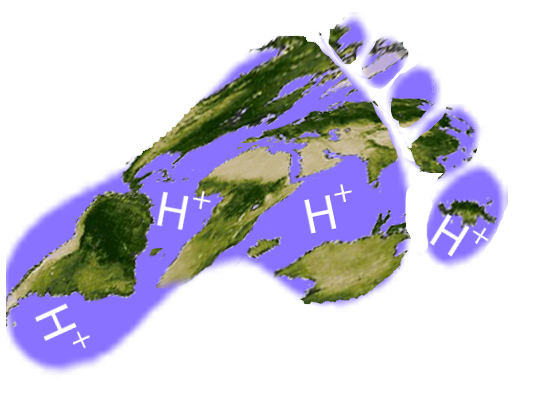
In addition to the famous impacts of atmospheric carbon on global warming, there is an equally worrisome effect of carbon dioxide on the oceans: ocean acidification (or OA for short). Here at I2SEA we have a series of resources about OA, including Our Acidifying Ocean, which is an introductory activity and virtual lab (note: now mobile compatible!).
A student suggested that we start a conversation topic about OA, and here it is! Have you heard about Ocean Acidification? If so, are you worried about it? How do you think we can best raise awareness about it among your fellow students and the general public? Have you seen particularly good links or films about OA that you would like to share? What are you doing to address the problem?
Ocean Acidification >
Ocean Acidification Analysis

Ocean acidification is a worldwide environmental issue mainly resulting from the increase in carbon dioxide (CO₂) levels in the atmosphere due to human activities such as burning fossil fuels and deforestation. When the ocean takes up too much CO₂, it dissolves into seawater to form carbonic acid, which lowers pH and reduces the amount of carbonate ions—a crucial ingredient for sea animals that build shells and skeletons, including corals, mollusks, and some plankton. This chemical process makes it more difficult for these animals to survive, breed, and maintain healthy populations, and threatening entire ocean food webs. The sources of ocean acidification have a lot to do with industrialization and continued reliance on carbon-releasing energy sources. The sea is projected to absorb about 30% of atmospheric CO₂ emissions, buffering global warming but accelerating acidification. Impacts are extensive, penetrating biodiversity, fishery, and marine-based coastal communities relying on the sea for livelihood and food. Coral reefs, which support around 25% of marine life overall, are particularly vulnerable and face increased threats of bleaching and erosion. Ocean acidification also effects the ocean's ability to store carbon, potentially reducing its potential to buffer climate change in the long term. This can be addressed through international cooperation to reduce carbon emissions, advance sustainable development, and tailor efforts to affected communities and ecosystems.

Thanks for sharing this! Ocean acidification is something I didn’t know much about until recently, and your post really helped break it down. It's wild how something like CO₂—something we can't even see—can have such a big impact on sea life.I didn’t realize coral reefs support that much marine life. That really puts into perspective how serious this is, especially for people who rely on fishing or live near the coast. It's kind of scary, but I like how you mentioned that there are solutions, like working together internationally and focusing on sustainability.
I’ve been trying to be more mindful about energy use, like unplugging stuff I’m not using and choosing more eco-friendly products. It feels small, but I think every little bit helps. Thanks again—your post was super informative and made me think more about how connected everything really is. ?





